Matt Belinkie: Do movie franchises have a natural lifespan?
Jordan Stokes: … How do you mean?
Belinkie: So, eight years in (starting with Iron Man in 2008), the Marvel Cinematic Universe looks as strong as ever: Civil War is a financial and critical success, the new Spider-Man has already won our hearts, and Infinity Wars is right around the corner. Meanwhile, the DC Cinematic Universe is off to a wobbly start after just two films, with Batman v. Superman doubling down on the problems of Man of Steel.
But what I’m really wondering about is the X-Men Universe.
Stokes: Wait, are the X-Men not Marvel?
Belinkie: Marvel publishes the X-Men comic books, but the film rights are owned by 20th Century Fox, along with the Fantastic Four. All the other Marvel movies — Iron Man, The Avengers, Ant Man, etc. — are produced by Marvel Studios. (Except for Spider-Man, which is Sony.) Anyway, the X-Men franchise seems to be at a crossroads. I’m pretty sure it’s the longest running superhero movie franchise of all time, dating back to 2000. Yes, obviously Batman and Superman have been in movies since long before that. But those have been rebooted several times.
Stokes: Let’s see: the Burton/Schumacher Batman franchise lasted eight years, with four films. Nolan’s Batman: seven years, three films. Christopher Reeve’s Superman: three films, five years. Raimi’s Spider-Man: three films, five years. It looks like the “normal” length is three films, coming out about once every other year?
Belinkie: X-Men is nine films (counting the spinoffs) from 2000-2016. BUT! Marvel actually has released 13 films since 2008! So in that respect Marvel has gone further than anyone. What makes X-Men unique, then, is its longevity. Sixteen years, while still trying to keep the threads of continuity intact! That’s literally twice as long as anyone else.
So the X-Men series is in uncharted territory: how long can a franchise go before you have to break the glass, hit the big red button, and restart the whole thing from scratch?
You can see them beginning to struggle with this. In X-Men: Apocalypse you have them recasting roles like Cyclops and Storm that were played by different actors originally. But you still have Hugh Jackman popping up as Wolverine, and Patrick Stewart is apparently going to play Professor X one more time in the third Wolverine solo film (after which they will presumably cast a new Wolverine, too). In the meantime, the brightest star of this second phase of X-Men films, Jennifer Lawrence, is probably gone after Apocalypse. The most successful X-Men character now is Deadpool, and it’s really unclear whether Deadpool can really work outside his own quirky bubble.
The whole X-Men universe feels a little duct-taped together right now.
Richard Rosenbaum: Is it purely a matter of number of films, length in time of an ongoing continuity, or some combination of both, that determines whether or not a franchise is in “middle age”? Because Star Wars has been going for almost 40 years with only (so far) seven movies. The The Fast and The Furious franchise is almost as old as X-Men!
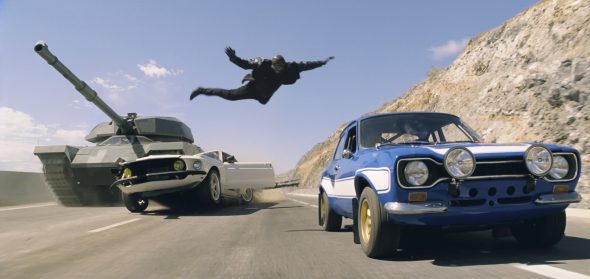
Proving once again that there’s an exception to every off-the-cuff theory about blockbusters — and that it’s always The Fast and the Furious.
Peter Fenzel: It’s worth parsing how much of the X-Men series’s longevity is by design, and how much of it is by circumstance. Because they kind of tried to reboot it. Clearly the shift from Stewart/McKellen to McAvoy/Fassbender as Professor X and Magneto was supposed to be a sort of soft reboot, even though it has explanations in-universe. But this didn’t really work, for five interrelated reasons:
1. The Hugh Jackman Problem
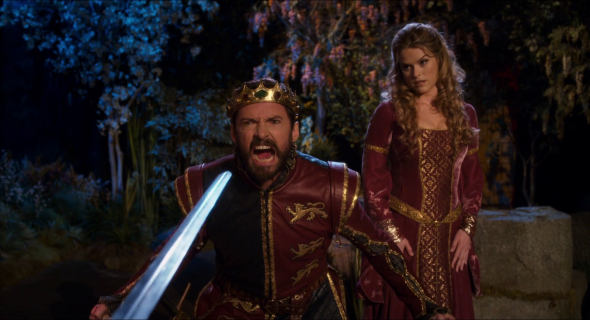
“He’s doing his Wolverine thing.”
Hugh Jackman has stayed awesome as Wolverine, much less played out than the other earlier X-Men in their roles, like Halle Berry, James Marsden, Famke Janssen or, of course, Kelsey Grammer. (Or even Anna Paquin, who is just gone.) And with Hugh Jackman still going great, that brings Patrick Stewart back, because he’s awesome. And now you haven’t really passed the torch to this new generation.
2. The Jennifer Lawrence Problem

JLaw being in these movies is virtually an accident at this point. She seems to want to be doing other things with her time. And she’s not necessarily great for the franchise, either: the way in which her star rose so quickly has forced the filmmakers to contrive ways for Mystique to be really important, which has come a little bit at the expense of story, and you can’t afford to sacrifice the story that much in your core property if you’re building a series of movies that’s as complicated as this one. So, either Jennifer Lawrence needs to be gone as Mystique for the franchise to move on, or they need to do something to balance out the star power of the franchise. This leads us to the corollary of the Jennifer Lawrence problem, which is:
3. The Nicholas Hoult Problem.
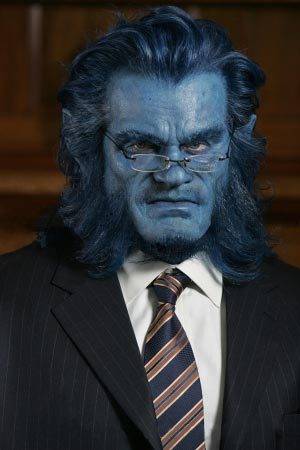
If you’re Beast and you’re not Kelsey Grammer then I DON’T KNOW YOU!
It’s not Jennifer Lawrence’s fault that she’s awesome and famous, it’s the fault of the other “next generation” characters in these movies that they’re not awesome enough or famous enough (or, perhaps, well-cast enough). Nicholas Hoult has been called upon to carry the most of this “younger generation” stuff, and I don’t think him as Beast really works. Despite being a fine actor and having done some great work, I don’t think he captures what is fun about the character, and I don’t think he can balance out the oomph of “Jennifer Lawrence-as-naked-shapeshifter” onscreen. If I were a real celeb gossip man, I’d suggest their off-screen relationship has been a weird factor too: you would think would be good for the general cultural energy around these movies, but I think instead that it has been mostly a weird distraction.
In general I think the next generation of X-Men characters (outside of Deadpool), have been way too “Hey fellow kids!” in their characterization — they’re attempts at courting “Millennials,” and not successes. As of this writing, I haven’t seen X-Men: Apocalypse, but I am not optimistic about Jubilee, Psylocke, Jean Gray, Nightcrawler or Cyclops, as they all look like the movie is trying really hard to make them cool and “with the times” rather than making them grounded at all as characters.
4. The Channing Tatum Problem
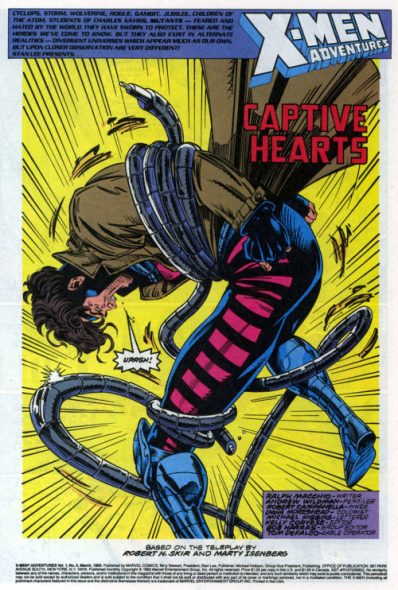
A lot of the half-in / half-out of these movies has to do with the various production problems with Gambit. Because, as I’ve mentioned, what these movies really need is next-gen characters who are solid enough and well-formed enough to make the center of gravity of the new X-Men outweigh the center of gravity of the old X-Men. And part of that, but not all of that, is star power. Deadpool was a great example of this actually working, but Deadpool is a side character: for the franchise to survive, you really need there to be a core-group member of the X-Men who can stand toe-to-toe with Hugh Jackman as Wolverine and not look like trash.
Fassbender is great as Magneto, but he’s not heroic, that’s not his role in these things. McAvoy can’t really do it as Professor X: before Patrick Stewart, Professor X was — rightfully — a slightly peripheral X-Men character who sent the other characters out on adventures, and I think that’s the direction he needs to go back to now, to an extent. Maybe some of the new blood in Apocalypse will be great, and I think Colossus and Negasonic Teenage Warhead are totally kick-ass and could definitely step up. But Channing Tatum would be a big shot in this direction, so the fact that his Gambit movie hasn’t been made yet is kind of depressing.
5. The Fantastic Four Problem.
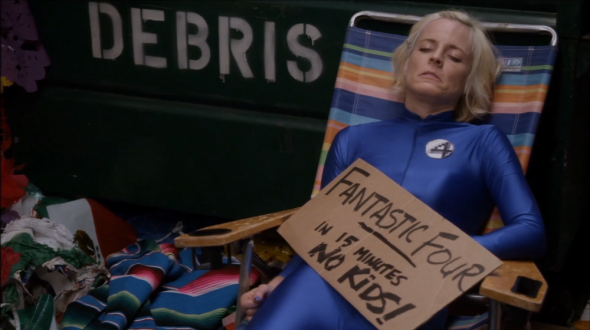
Well, the Fantastic Four is garbage right now, and that’s a problem, because they’re a huge part of the X-Men Cinematic Universe in terms of rights ownership, and they don’t seem to be strategically aligned with it at all. I don’t have a sense for where the Fantastic Four are headed, either on their own, or as part of any cinematic universe. On one hand, the most recent Fantastic Four movie was a big failure that calls into question the point of doing any others for the legal maximum that allows Fox to retain the rights. On the other hand, the Fantastic Four movie was not necessarily a failure as a concept, but more a failure of execution, with the director and the studio tearing the movie into incoherent chunks, so maybe the fact that it was bad doesn’t necessarily mean it wasn’t planned to connect with the X-Men in an interesting way. But then on the one hand again, even if the Fantastic Four movie had been the Kronenberg-esque creepshow it was supposed to be, how was that going to connect with the Fassbender / McAvoy X-Men, exactly? I don’t quite see it. And then on the other hand again, is it even possible to recover the franchise from that kind of failure soon enough to crossover into the other franchise, assuming there was a plan to do so in the first place?
It seems like a garbage-if-you-do, garbage-if-you-don’t situation, where either the Fantastic Four are completely off the rails and there’s no way to bring them into the X-Men without it being garbage, or the Fantastic Four are on the rails, but they’re on a different line and are a different kind of train, so there’s still no way to bring them into the X-Men without it being garbgage.
Fantastic.
Belinkie: I happen to think one of the problems of the onscreen X-Men is that a lot of the powers they have don’t actually lend themselves to a well-balanced action scene. Take Professor X. He can freeze dozens of people simultaneously with his mind, unless you have that one helmet. Where’s the fun in that? Quicksilver is so comically fast it’s hard to imagine anyone seeing him, much less beating him. Magneto lifts one very large thing per movie. Wolverine has got claws that would be instantly deadly when used against any of the characters in this more grounded universe (except a Deadpool type). What I’m saying is that these individual X-Men have great powers, but the screenwriters actually have to tie themselves in knots to have them in fights together. It usually means incapacitating a bunch of characters to even the score. Not to be a Marvel fanboy, but compare that to Civil War, where all the characters could duke it out to great effect. (To be fair, they had to exclude Hulk and Thor who are in a different power tier.)
Rosenbaum: The other thing to consider is that Marvel, in the comics, is deliberately trying to tank all the characters to which other studios have the rights. The Fantastic Four have disbanded, mutants are an endangered species (again) with all of them either dead, sterilized, or (apparently) left the planet. They’ve been supplanted by Inhumans for the time being.
Belinkie: Well hold on, aren’t there like seven different concurrent X-Men books?
Rosenbaum: There are a lot, but they’re trying to ruin them while making it seem like that’s not what they’re doing. They killed Wolverine. They’ve explicitly instructed writers that they’re not allowed to create new characters who are mutants. It’s a lot like what the Toronto Maple Leafs did this past season; officially they’re not allowed to admit that they were trying to lose, but it was pretty obvious that they wanted to end up in last place to have the best chance of acquiring the #1 draft pick. And it worked!
Oh, they killed Professor Xavier too. Marvel, not the Leafs.
Stokes: This has got to be the s#!@iest protection racket of all time.
Wiseguy: “This is some beautiful intellectual property that
you’veI’ve got here. Be a shame if anything happened to it.”Frightened shopkeeper: “… to YOUR intellectual property, now?”
Wiseguy: [Sets himself on fire.]
Rosenbaum: Indeed. It seems particularly spiteful. Very much a case of Marvel cutting off its own nose with the faith that its mutant healing factor will grow it back again in the future whenever it’s needed.
Of course, X-Men comics have not been good since the Age of Apocalypse storyline, which was fully twenty years ago now.
Fenzel: Disney is probably just waiting for Fox to give up the X-Men rights so that they can do the mega-crossover everybody’s been been waiting for: Onslaught.
Because you know what didn’t suck and totally made sense? Onslaught.
Belinkie: It would be an amazing solution to everyone’s problems if, at the end of Infinity Wars in 2019, the X-Men Universe and Marvel Universe combine. It’s not completely out of the question, since Sony and Disney have some kind of Spider-Man co-parenting deal.
Stokes: That podcast doesn’t fill me with enthusiasm, though. Let’s hope the writers can come up with something better than that.
Rosenbaum: Oh man. Onslaught. Onslaught was the first story after Age of Apocalypse and the X-Men books have still not recovered.
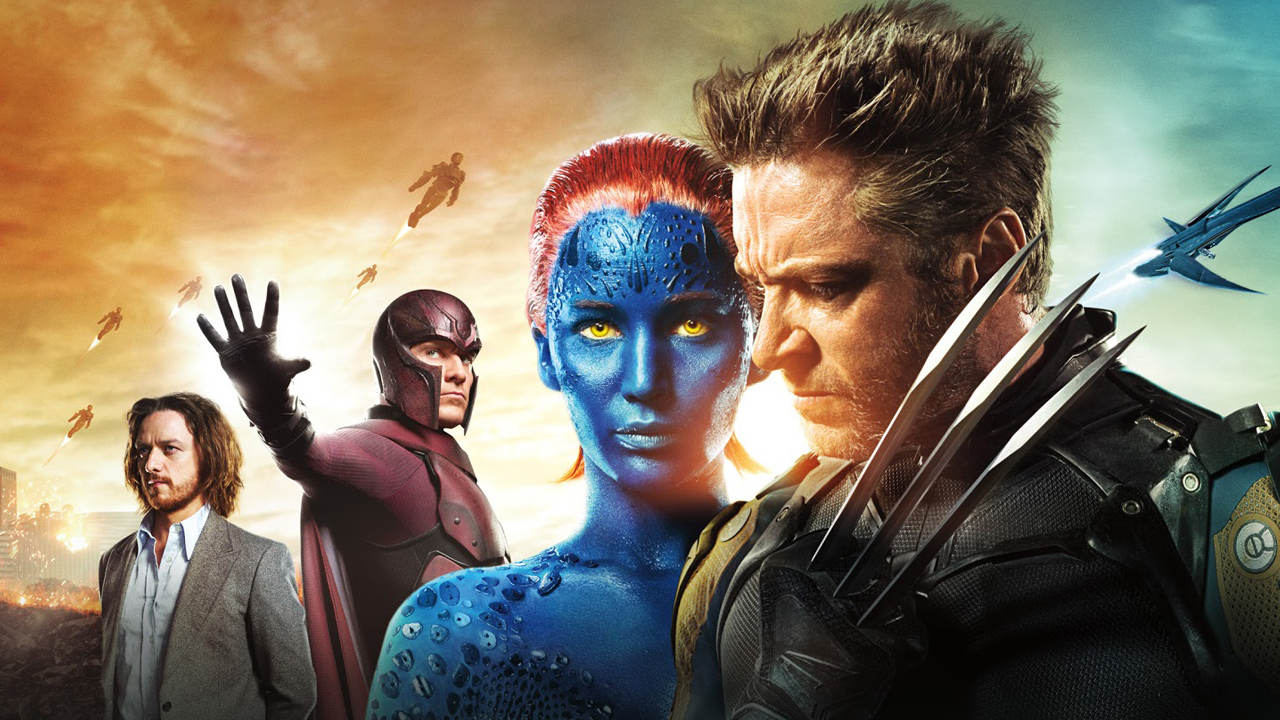
Reading this I thought the perfect analogy for the X-men cinematic universe is a bad rts-game. They tried cramming too many powers in, which made the match-ups unbalanced as you said above. But what I think is funny then is how the climactic battles in Last Stand and Wolverine are like a developer just wiping out underpowered factions (or here it’s mutants) and in it’s place releasing another OP faction that was a combination of all their best bits. They did it twice. And what’s worse, Deadpool (the original crappy movie version) cannot be a better metaphor for this, his powers are actually stolen from other mutants.
“Christopher Reeve’s Superman: three films, five years.” Superman IV: Quest for Peace doesn’t even count, does it?